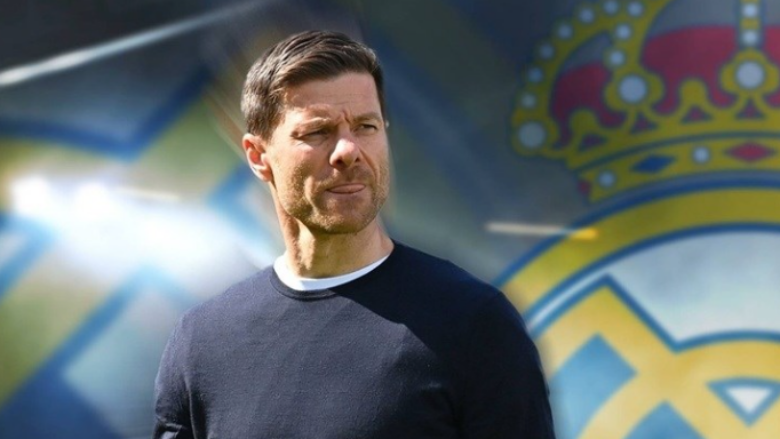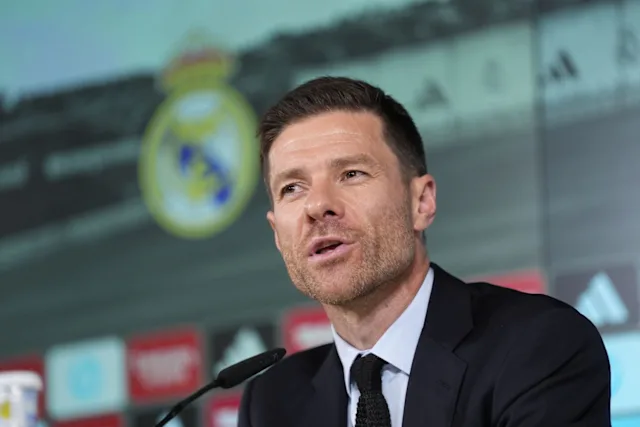Xabi Alonso is a name that resonates across generations of football fans, celebrated not only for his exceptional vision and passing skills on the pitch but also for his rising status as a world-class manager. From dazzling fans as a player in La Liga, Premier League, and Bundesliga to now crafting a tactical legacy as a coach, Alonso’s football journey is nothing short of remarkable.
Early Life and Football Beginnings
Xabi Alonso was born on November 25, 1981, in Tolosa, a town in the Basque Country of Spain. Football was deeply rooted in his DNA—his father, Periko Alonso, was a former Spanish international who played for Real Sociedad and FC Barcelona. Xabi grew up immersed in football culture and shared a close relationship with his brother Mikel Alonso, who also pursued a career in professional football.
Alonso’s youth career began at Antiguoko, a small club in San Sebastián, where he played alongside future Spanish international Mikel Arteta. The duo became lifelong friends. His potential became evident early, and by the time he was 18, Xabi Alonso joined Real Sociedad, the same club his father had once played for.
Rise to Stardom at Real Sociedad
Alonso’s senior debut came in 1999, and after a brief loan spell at Eibar in the Segunda División, he returned to Real Sociedad in 2001. His emergence as a deep-lying playmaker became the heartbeat of Sociedad’s midfield. Under manager Raynald Denoueix, Alonso captained the team to a stunning second-place finish in La Liga in the 2002-03 season.
His calm demeanor, precision passing, and tactical intelligence caught the attention of clubs across Europe. Real Sociedad recognized they had a gem, but it was only a matter of time before a bigger club came calling.
Liverpool: The European Glory
In 2004, Xabi Alonso made a high-profile move to Liverpool for £10.5 million. Under the guidance of manager Rafael Benítez, Alonso was quickly slotted into the midfield alongside Steven Gerrard. His debut season with the Reds was historic.
In the 2004-05 UEFA Champions League final in Istanbul, Liverpool staged one of the most dramatic comebacks in football history, recovering from a 3-0 halftime deficit against AC Milan. Alonso scored the equalizing goal from a rebounded penalty, setting the stage for Liverpool’s eventual victory in a penalty shootout. It was a defining moment that etched Xabi Alonso’s name in European football folklore.
During his time at Liverpool (2004–2009), Alonso won the FA Cup (2006), the UEFA Super Cup (2005), and the Community Shield (2006), alongside the iconic Champions League title.
Real Madrid: Homecoming and More Silverware
In 2009, Alonso returned to Spain, signing with Real Madrid for approximately €30 million. He became an integral part of the Galácticos era, playing under managers like Manuel Pellegrini, José Mourinho, and Carlo Ancelotti.
With Alonso as a deep-lying midfielder, Real Madrid became tactically balanced. He played a vital role in winning La Liga in 2011–12, the Copa del Rey in 2010–11 and 2013–14, and finally the UEFA Champions League in 2013–14—the famed La Décima, Real Madrid’s tenth European title.
Alonso’s tenure at Madrid was marked by consistency, maturity, and leadership. He was respected for his ability to control the tempo of the game, breaking up opposition play and distributing the ball with pinpoint accuracy.
Bayern Munich: Master of the Bundesliga

In 2014, Xabi Alonso moved to Bayern Munich under Pep Guardiola. Despite being in the latter stages of his career, Alonso’s impact in the Bundesliga was immediate. He adapted seamlessly to Guardiola’s possession-based style and was often used as a pivot in midfield.
During his three seasons at Bayern, Alonso won three consecutive Bundesliga titles (2014–15, 2015–16, and 2016–17), along with a DFB-Pokal (2015–16). His elegance on the ball, combined with tactical intelligence, made him a fan favorite in Germany.
Alonso retired in 2017, leaving behind a legacy as one of the most complete midfielders of his generation.
International Career with Spain
Xabi Alonso was part of Spain’s “Golden Generation,” earning 114 caps between 2003 and 2014. He played key roles in Spain’s historic treble—winning Euro 2008, the 2010 FIFA World Cup, and Euro 2012.
Often overshadowed by stars like Xavi and Iniesta, Alonso provided balance and defensive cover, allowing Spain’s attacking talents to flourish. His brace against France in Euro 2012’s quarterfinals stands as one of his most memorable international performances.
He retired from international football after the 2014 World Cup.
Transition to Coaching
After retiring as a player, Xabi Alonso turned his focus to coaching—a transition that surprised few given his deep understanding of the game.
He started with youth coaching at Real Madrid before taking charge of Real Sociedad B in 2019. Under his management, Sociedad B achieved promotion to the Segunda División for the first time in decades, a remarkable feat.
In 2022, Alonso took the helm at Bayer Leverkusen in the Bundesliga. When he joined, Leverkusen were struggling, near the relegation zone. Within months, Alonso transformed the team with attacking football, tactical discipline, and youth development.
Tactical Philosophy
As a manager, Xabi Alonso has showcased flexibility and intelligence, often switching between formations like 4-2-3-1 and 3-4-2-1. He emphasizes pressing, positional play, and fluid build-up—elements inspired by his former managers like Guardiola, Mourinho, and Ancelotti.
Analysts have praised Alonso’s calm demeanor, man-management, and ability to develop young players, positioning him as one of Europe’s top emerging coaches.
Personal Life
Off the pitch, Xabi Alonso is known for his reserved personality and gentlemanly conduct. He married his childhood sweetheart, Nagore Aranburu, and the couple has three children. Alonso has always maintained a private family life, despite his global fame.
Beyond football, Alonso is multilingual—speaking Spanish, English, German, and Basque—and is often admired for his intelligence, humility, and class.
Xabi Alonso’s Legacy
Xabi Alonso is more than just a footballer or coach—he is a symbol of intelligence, professionalism, and elegance. As a player, he excelled in the world’s top leagues. As a manager, he’s now carving out a path that could see him managing elite clubs or even national teams in the near future.
His story reflects a journey of continuous learning and evolution—from the green pitches of Tolosa to Champions League glory and now the touchlines of European football. Xabi Alonso’s name is already etched in history, but his second act as a manager promises even greater heights.
Conclusion
Xabi Alonso’s football journey is a masterclass in versatility, intelligence, and elegance. From a midfield maestro to a promising tactical genius on the sidelines, Alonso has excelled in every role he has taken on. Whether winning Champions League titles or resurrecting struggling teams, Alonso has proven that football is not just about flair—but also vision, discipline, and strategy.
As the football world watches his managerial journey unfold, it’s clear that Xabi Alonso is destined to leave as profound a mark as a coach as he did as a player. For fans and pundits alike, he is a figure of class—on and off the field.
FAQs
Q1: What position did Xabi Alonso play?
A: Xabi Alonso played as a central or defensive midfielder, known for his passing range, vision, and tactical intelligence.
Q2: Which clubs did Xabi Alonso play for?
A: Alonso played for Real Sociedad, Eibar (on loan), Liverpool, Real Madrid, and Bayern Munich.
Q3: How many Champions League titles has Xabi Alonso won?
A: He won two UEFA Champions League titles—one with Liverpool in 2005 and another with Real Madrid in 2014.
Q4: What is Xabi Alonso’s current profession?
A: As of 2025, Xabi Alonso is a professional football manager, currently managing Bayer Leverkusen in the German Bundesliga.
Q5: Is Xabi Alonso considered a successful manager?
A: Yes, Alonso is widely regarded as one of the most promising young managers in Europe, especially after transforming Bayer Leverkusen into a competitive force.
Q6: Did Xabi Alonso win the World Cup?
A: Yes, he was part of Spain’s 2010 FIFA World Cup-winning squad.
Q7: What are Xabi Alonso’s key strengths as a manager?
A: His key strengths include tactical flexibility, calm leadership, effective player development, and the ability to adapt strategies to match situations.
Q8: Did Xabi Alonso ever receive a red card in his career?
A: While known for his discipline, Alonso did receive a few red cards throughout his career, often in high-stakes matches.
Q9: Who influenced Xabi Alonso’s coaching style the most?
A: His style has been influenced by managers like Rafael Benítez, José Mourinho, Pep Guardiola, and Carlo Ancelotti.
Q10: What is next for Xabi Alonso?
A: Many speculate he may soon take charge of an elite European club or even the Spanish national team, given his growing reputation as a top-tier manager.
Also read: Monk Names



Pingback: Richard Rios: The Rising Star in Brazilian Football - NYWeeklys